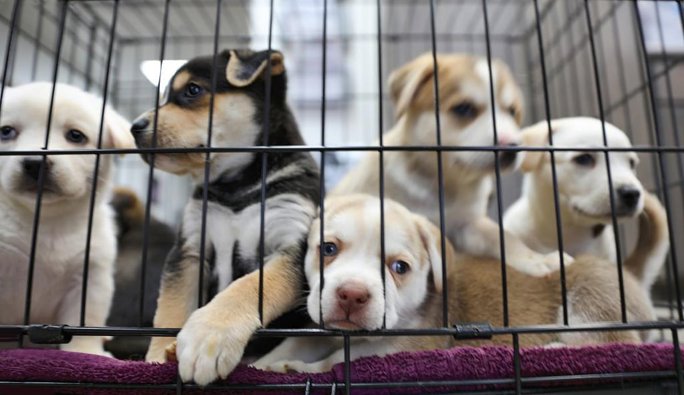
Navy Halts Dog, Cat Testing; PETA Seeks Pentagon-Wide Ban
Trump administration halts Navy dog and cat tests; PETA calls for broader military-wide animal research ban.
Navy Ends Dog and Cat Testing Amid Rising Ethical Scrutiny
The U.S. Navy has officially ended all medical testing involving dogs and cats, following a directive from Navy Secretary John Phelan issued on Tuesday. The move, backed by President Donald Trump and driven by advocacy from watchdog group White Coat Waste, ends years of federally funded research that critics say subjected animals to unnecessary suffering and cost taxpayers over $5.1 million.
“This is long overdue,” said Secretary Phelan in a video statement. He further announced that the Navy surgeon general has been directed to conduct a full audit of the military’s medical research programs to ensure alignment with ethical standards and operational priorities. The audit aims to evaluate the scientific necessity of all ongoing animal testing initiatives within the Navy.
The People for the Ethical Treatment of Animals (PETA) responded with cautious praise, sending a letter on Thursday to Defense Secretary Pete Hegseth and Navy Secretary Phelan thanking the administration for the ban. PETA urged the Department of Defense (DOD) to extend the policy across all branches of the military, including the Army and Air Force.
The organization specifically called for an end to Navy-sponsored decompression sickness and oxygen toxicity tests, and a halt to Army weapon-wounding experiments involving dogs, cats, nonhuman primates, and marine mammals. These tests were banned in the 1980s but reinstated in 2020 by the U.S. Army Medical Research and Development Command.
In 2023, following pressure from PETA, the Army withdrew $750,000 in funding for a brain trauma experiment on ferrets conducted at Wayne State University. Public records obtained by PETA revealed disturbing details of animal treatment across military labs, including baby pigs surgically altered and exposed to high-pressure chambers for extended periods before being euthanized.
One experiment described a pig being given a drug that caused severe overheating and muscular convulsions before death. Another case involved a rat that died of suffocation after equipment failure, with the incident left unreported for 23 days.
According to PETA, over $5.1 million in federal funding has been spent since 2020 on decompression and oxygen-related testing at institutions such as Duke University, the University of Maryland, the University of California San Diego, and the University of South Florida. PETA Vice President Shalin Gala stated, “Pigs, rats and other animals feel pain and fear just as dogs and cats do, and their torment in gruesome military experiments must end.”
PETA Targets Foreign Military-Funded Research
The advocacy group also raised concerns over Pentagon-funded research conducted outside the U.S. In Canada, a University of Alberta researcher has received $429,347 in DOD funds to use dogs as models for muscle-wasting diseases. In Australia, $599,984 was allocated to a project that burns 30% of rats’ skin and livers to simulate hemorrhaging injuries.
PETA urged the DOD to halt funding for such projects and impose a comprehensive ban on the use of animals in any military research, regardless of location or species.
While the Department of Defense and Navy officials have not yet issued statements in response to the letter, the Navy’s new directive marks a major milestone in military research policy. With mounting pressure from animal rights advocates and growing public scrutiny, the Pentagon may face broader calls to eliminate animal testing throughout all military branches.






